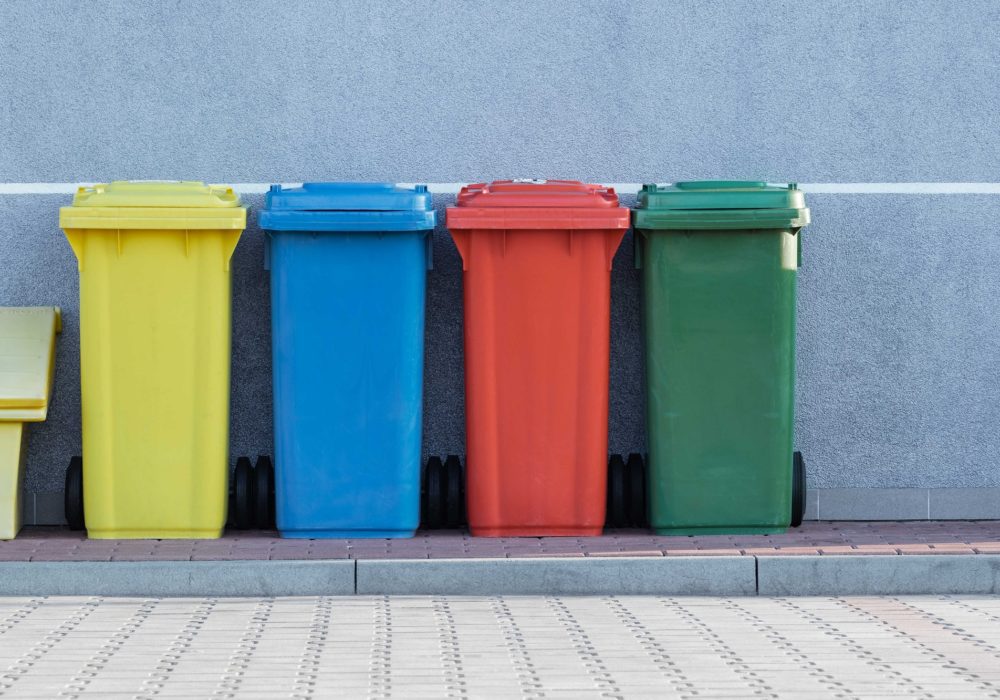
Putting the bins out should be a simple task. But for many households, sorting rubbish into the right receptacle has become too complicated. Multiple bins and complex rules – which can be different in each council – are making waste disposal a challenge. As a result, local authorities regularly deal with incorrectly sorted refuse.
How can we make bin sorting simpler, to help councils streamline waste management? Let’s take a closer look at the issue…
Coffee and confusion
Managing waste collection and disposal is a mammoth task, particularly given recycling rate targets. Therefore, it makes sense for local residents to help out by sorting their household rubbish. However, with councils in each region using different rules for separating out recyclable materials from general waste, and no consistent guidance, confusion can set in.
The challenges associated with putting rubbish in the right bin on collection day were recently highlighted by LARAC, The Local Authority Recycling Advisory Committee.
LARAC responded to a blog post from Mad Mother, a parent who was shocked to discover that her single-use takeaway coffee cups are not recyclable. Having thrown her cup in the recycling box for several years, she wrote an open letter to the British Coffee Association, asking them to provide more visible information on why these cups can’t be recycled.
Mad Mother’s post also urges coffee companies to make changes that will allow takeaway cups to be produced from recyclable materials. But where does council waste management fit into the picture?
Changing people’s rubbish behaviour
Although several of Mad Mother’s points need to be addressed by the hospitality industry first, her discovery highlights something important: most people don’t know what packaging can and can’t be recycled, and where to dispose of items correctly.
Local authorities expect households to understand complex recycling systems, which change and evolve. There’s also a lack of consistency; bin collections can differ from one street to the next.
These complications can lead to two significant problems for waste management teams:
1 – Residents putting packaging in the wrong bin – for example, should biodegradable plastic be placed into green waste or residual? Why should broken glass be put in residual waste, rather than glass recycling?
2 – People not bothering to recycle because they’re worried about getting it wrong
Both of these are an issue that authorities must tackle, because waste management runs smoothest when people follow regulations. Indeed, households have an important role to play in ensuring waste disposal operates efficiently from beginning to end, as it saves collection crews, waste disposal and recycling plant teams putting in extra work.
Working with communities – and behind the scenes
To fix the country’s bin day crisis, councils need to work both with local residents, and behind the scenes either reviewing their own processes or working with their chosen waste contractor.
At a community level, there needs to be a clear system in place for disposing of all types of rubbish, which must be communicated effectively across the local area. Many rubbish sorting mistakes happen because people simply don’t know what types of packaging can be recycled, and which can’t.
Local authorities need to look at how they can use online and offline tools such as printed leaflets, social media channels and email newsletters to educate people on accurate bin sorting. There are also cutting-edge mobile applications, like the Whitespace Resident App, which helps councils send messages directly to residents. And these communications need to be sent out on a regular basis, so that people don’t forget local recycling and general waste protocol.
In addition, council waste management teams need to work internally to streamline workflows for collecting and processing waste – even if households make a mistake on bin day.
Currently, one of the biggest challenges councils face is that they are either relying on manual systems to manage municipal waste requirements, or they are using legacy software that is no longer up to the job. ‘Making do’ might get through the week but, over time, performance becomes slower and less efficient.
The most effective way to compliment the effort that local residents are putting in is to implement the operational technology needed to run waste management efficiently.
Using waste management software to improve performance
Investing in municipal waste management technology is the simplest way to kick-start refuse collection services. Using digital software, teams can map out the easiest way to collect and handle household rubbish, to create an easy-to-follow bin day system.
The simpler the set-up, the more likely it is that local residents will follow the rules and dispose of rubbish correctly. This saves a lot of time and energy among staff, and it can also improve local recycling rates.
Equally, digitising waste management on the latest platform will enable teams to continuously learn, improve upon current systems and processes, and identify problem hotspots. For example, Whitespace municipal waste management technology includes real-time communications between central office staff and collection crews out on the road, so issues can be highlighted and dealt with as quickly as possible.
Responsive, flexible refuse collection services
Getting waste management right is a two-piece challenge, which relies on both residents and local authority teams to play their part. Many councils have the desire to make bin sorting simpler for their community, but they simply don’t have the infrastructure to achieve this at present.
While there may be some temporary workaround options, the only effective long-term solution is to invest in municipal waste management technology that is responsive and flexible enough to react to people’s waste disposal habits. By putting a new digital system in place, councils can test, learn and simplify, to make bin day less of a headache for everyone involved.
Improve the way you manage municipal waste: book a free Whitespace demo.
